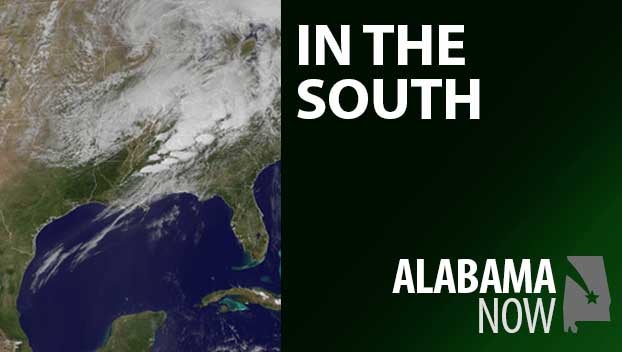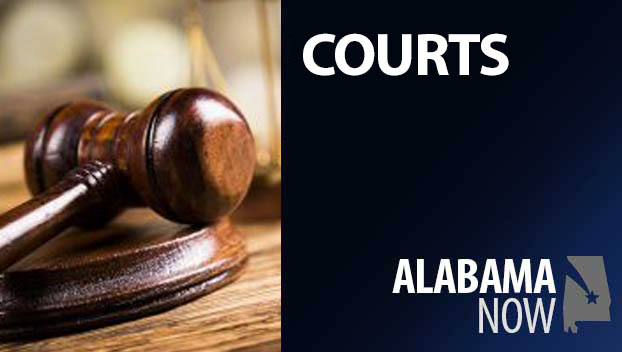America braces for bone-chilling, dangerously cold weather approaching
Published 10:33 pm Tuesday, December 20, 2022
A large swath of the U.S. braced for a dangerous mix of sub-zero temperatures, howling winds and blizzard conditions expected to disrupt plans for millions of holiday travelers.
The blast of frigid weather began hammering the Pacific Northwest Tuesday morning, and is expected to move to the northern Rockies, then grip the Plains in a deep-freeze and blanket the Midwest with heavy snowfall, forecasters say. By Friday, the arctic front is forecast to spread bone-chilling cold as far south as Florida.
Authorities across the country are worried about the potential for power outages and warned people to take precautions to protect the elderly, the homeless and livestock — and, if possible, to postpone travel.
The northern-most regions of the U.S. could see wind chills approaching 70 degrees below zero (minus 57 Celsius) — cold enough to leave exposed skin frostbitten in a matter of minutes.
Even warm-weather states are preparing for the worst. Texas officials are hoping to avoid a repeat of the February 2021 storm that left millions without power, some for several days. Temperatures were expected to dip to near freezing as far south as central Florida by the weekend.
The drop in temperatures will be precipitous. In Denver, the high on Wednesday will be around 50 degrees (10 degrees Celsius); by Thursday, it is forecast to plummet to around zero (minus 18 Celsius).
The heaviest snow is expected in Idaho, Montana and Wyoming, according to the National Weather Service, and frigid wind will be fierce across the country’s mid-section.
“I would not be surprised if there are lots of delays due to wind and also a lot of delays due to the snow,” said Bob Oravec, lead forecaster for the National Weather Service in College Park, Maryland.
The Northwest was already experiencing the effects by Tuesday. In Vancouver, Canada, authorities at the city’s YVR airport said the conditions have resulted in an “unprecedented number of cancelled flights,” adding that cancellations and delays “will persist for the majority of scheduled flights” and that de-icing operations will continue to be necessary. In Seattle, a combination of snow, rain and low visibility caused nearly 200 flight cancellations at Seattle-Tacoma International Airport. Greyhound cancelled bus service between Seattle and Spokane, Washington.
In Oregon, one person died Tuesday after a semi-truck collided with an SUV. Police said a thin layer of ice on the highway may have been a contributing factor.
Nearly 113 million Americans were expected to travel 50 miles or more from home this holiday season, up 4% from last year but still short of the record 119 million in 2019, according to AAA. Most were planning to travel by car; around 6% were planning to fly.
Several inches of snow were expected from Chicago through the Great Lakes region by Friday. Snow also was forecast in the lower Midwest. With the storm approaching, Delta, American, United and Southwest airlines said they were waiving change fees for people traveling through affected airports.
The National Weather Service predicted wind-chill levels in Montana that could approach 60 degrees below zero (minus 51 Celsius) by Thursday morning. Almost impossibly, the forecast was even worse for parts of Wyoming. The 1,500-resident town of Lusk could see wind chills of 70 degrees below zero (minus 57 Celsius.)
“Please take precautions: Check on elderly/vulnerable, protect pets, shelter livestock, cover exposed skin!” the local branch of the National Weather Service said on Twitter.
Karina Jones’ family raises about 400 head of cattle in north-central Nebraska near Broken Bow, where wind chills as low as 50 below zero (minus 46 Celsius) are expected Thursday and Friday mornings. She said Nebraska cattle ranchers are “a hearty bunch,” but the bitter cold is rough.
Ranchers “lie awake at night praying that you did everything you could for your livestock,” Jones said.
In Kansas, where up to 4 inches of snow is expected to accompany wind chills dipping to 40 degrees below zero (minus 40 Celsius), Shawn Tiffany runs three feedlots with about 35,000 cattle combined. He’s worried about keeping 40 employees safe and warm.
“Every conversation I’ve had for the last four days has consisted of ‘Are you prepared and are you ready?’ Everybody is taking it very seriously,” Tiffany said.
In Texas, where the temperature is expected to drop to around 11 degrees (minus 12 Celsius), the state’s power grid will be put to the test once again.
A historic freeze in February 2021 led to one of the biggest power outages in U.S. history, knocking out electricity to 4 million customers in Texas and leading to hundreds of deaths.
The Electric Reliability Council of Texas, which manages the state’s power grid, said last week it expects to have sufficient generation to meet anticipated electricity demand during this week’s winter blast. The council said it has implemented reforms to increase reliability, including bringing more generation online sooner if needed and purchasing more reserve power.
But a report on the power grid that ERCOT published last month said that Texans could still face possible power outages this winter if an extreme storm prompted very high demand for electricity.
In Jackson, Mississippi, where dangerously cold weather is expected by the weekend, all eyes are on the capital city’s troubled water system. A cold snap in 2021 left tens of thousands of people without running water after pipes froze, and Mayor Chokwe Antar Lumumba said Monday that the water distribution system remains a “huge vulnerability.”
The deep-freeze will be particularly dangerous for people without homes. Salt Lake City will make 95 additional shelter beds available after five died in recent days amid sub-freezing temperatures, Mayor Erin Mendenhall, a Democrat, said.
In Kansas City, Missouri, emergency shelters are opening for anyone needing warmth, food or safety. Organizers warn, though, that capacity is limited overnight.
“We’re going to get in as many as we can,” said Karl Ploeger, chief development officer for City Union Mission, a Christian nonprofit.
If the shelters are over-capacity at night, the mission works with other organizations to try and find alternatives for people.
Northern Florida cities such as Tallahassee may see temperatures in the low 20s (minus 3 Celsius) on Friday, Christmas Eve and Christmas nights. The forecast calls for temperatures to drop to near freezing as far south as Tampa.





